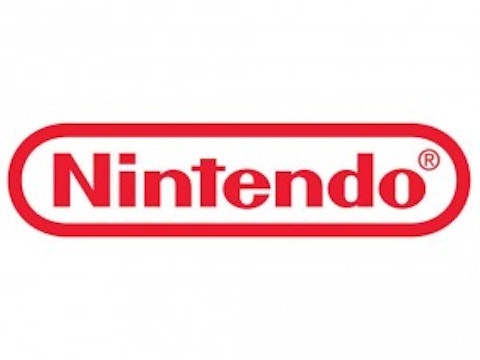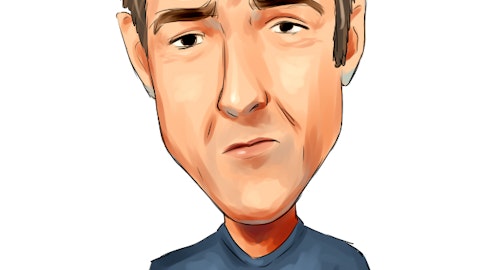Nintendo Co., Ltd (ADR) (NASDAQOTH: NTDOY) has long been one of the chief players and innovators in the videogame industry. The company has been credited with bringing the videogame market back from the verge of complete collapse and maintains one of the most iconic and valuable casts of characters in the medium.

It is my position that Nintendo Co., Ltd (ADR) (NASDAQOTH: NTDOY) stock is currently overvalued at a price of around $17. Nintendo Co., Ltd (ADR) (NASDAQOTH: NTDOY) has seen an rise in the valuation of its stock over the course of the last year, however there are many indicators suggesting that such positive momentum is unsustainable and that its stock price will drop.
The company’s rising stock price has been driven largely by the solid performance from its 3DS handheld. The system has been putting up good numbers in all of the major territories, securing the top spot on June’s NPD charts and topping the Japanese trackers on a weekly basis. Recent releases such as Animal Crossing and Luigi’s Mansion 2 have shown strong performance and signs of franchise growth. The value of Nintendo Co., Ltd (ADR) (NASDAQOTH: NTDOY) has climbed over 25% over the last year. The last month in particular has shown incredible growth for the company. Yet, if the stock is climbing in response to good sales from the 3DS and key Nintendo Co., Ltd (ADR) (NASDAQOTH: NTDOY) franchises, such action appears shortsighted.
Nintendo Co., Ltd (ADR) (NASDAQOTH: NTDOY)’s Wii U console stands to become one of the biggest flops the company has ever released and has the potential to be the last home console it ever produces. After a decent launch performance, sales of the console have slowed to a veritable crawl. While hardware sales have been undeniably disastrous, it is software sales that show that the console has no future. In the sixth months that the Wii U has been on the market in the UK, total software sales tallied only 179,000.
Keep in mind that the system is the successor to the hugely popular Wii, which dominated the early years of the last console cycle. While the Wii flew off the shelves and drove consumer interest with its introduction of motion controls, the Wii U has shown that it inspires little more than consumer apathy. The lack of compelling software to sell the concept of the system’s Gamepad controller has left the console dead in the water. Wii U might not wind up being a disaster on the same level as the Virtual Boy, but it will take a substantial turn around to match even the sales levels of the disappointing GameCube. I do not believe that the present price for Nintendo stock accurately reflects the fact that Wii U is a sunken ship that would require far too much in the way of resources and luck to salvage.
In light of the Wii U’s poor messaging, suspect value proposition, and failure to launch, third party publishers have dropped support for the platform. Software giant Electronic Arts Inc. (NASDAQ:EA), who once touted an “unprecedented partnership” with Nintendo, no longer has Wii U titles in development. While the company has certainly cut down on its propensity to release on as many platforms as possible over the last several years, the fact that Wii U will not be receiving versions of such major franchises as Madden, FIFA, and Battlefield is a terrible indication of the console’s future. Meanwhile, Electronic Arts Inc. (NASDAQ:EA) has been seeing substantial gains as a result of its investment in the mobile sector. Interestingly enough, the emergence of the mobile market is also one of the greatest threats to Nintendo. Electronic Arts Inc. (NASDAQ:EA) recently announced that is biggest retail partner over the last quarter was Apple Inc. (NASDAQ:AAPL). The company also revealed substantial growth in its revenue from digital sales, with that figure climbing to $378 million.
Speaking of Apple Inc. (NASDAQ:AAPL), the company has shown that it is increasingly interested in and capable of dominating the gaming market. Apple Inc. (NASDAQ:AAPL)’s iDevices have proven to be a Trojan horse for getting gaming enabled devices to a huge, mass-market audience. While the games on its Apps store typically retail well below a standard Nintendo handheld title, they are capable of reaching a much wider consumer base. What’s more, many of these titles are built around a micro-transactional model that draw a massive and steady stream of revenue. Casual gamers are increasingly gravitating towards mobile offerings and are seeing less reason to purchase a dedicated device.
Of all the hardware manufacturers, this represents the greatest threat to Nintendo. With the release of the DS and the Wii, Nintendo successfully courted and introduced a new wave of consumers to gaming. Sales trends make it quite clear that many of these new gamers are not sticking with Nintendo.
There’s no denying that the traditional market for videogames is contracting. In its place, we are seeing explosive growth in web, mobile, and independently developed games. It is my belief that much of this contraction will come at Nintendo’s expense. While the 3DS will likely enjoy moderate success for the rest of its lifecycle, it will come nowhere close to the sales of its predecessor. To make the same statement regarding the Wii U in relation to the Wii would be a massive understatement. The system’s yearly sales are going to wind up nowhere near Nintendo’s projections. Now consider that the Wii U is presently sold at a loss due to the screen and streaming technology in its controller and question whether Nintendo is an a position cut MSRP for a product no one seems to want.
So, the company is left dominating the quickly shrinking dedicated handheld market, irrelevant in the home console space, and too stubborn and inefficient to properly take advantage of the mobile market. I have doubts as to whether selling its games on iOS or Android devices would even be that lucrative for Nintendo, but at some point the company may not enjoy the luxury of choice.
Keith Noonan has no position in any stocks mentioned. The Motley Fool recommends Apple. The Motley Fool owns shares of Apple. Keith is a member of The Motley Fool Blog Network — entries represent the personal opinion of the blogger and are not formally edited.
The article Nintendo Faces Trouble Ahead originally appeared on Fool.com is written by Keith Noonan.
Copyright © 1995 – 2013 The Motley Fool, LLC. All rights reserved. The Motley Fool has a disclosure policy.





